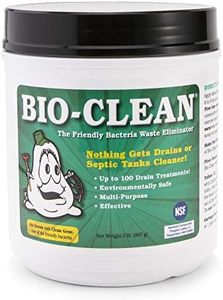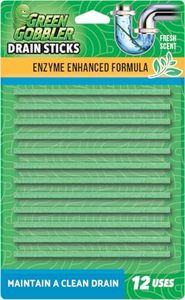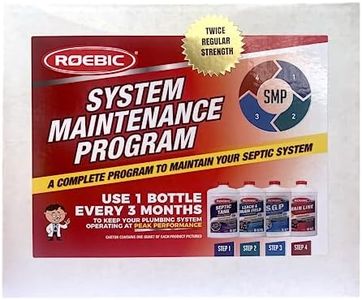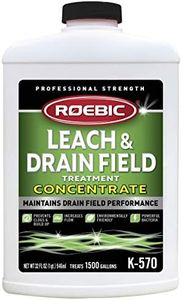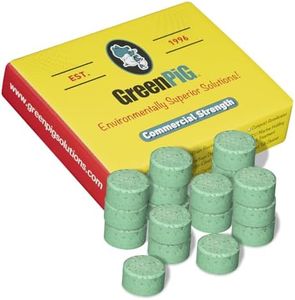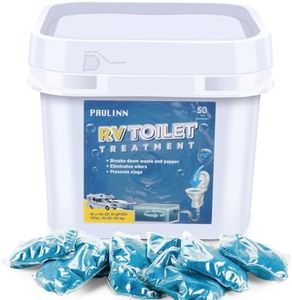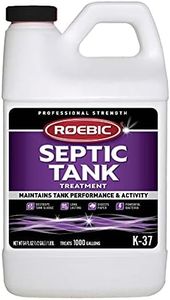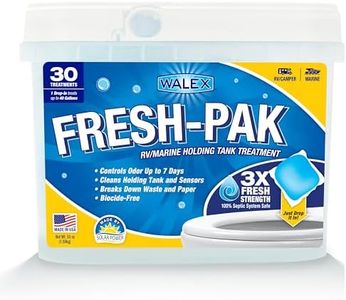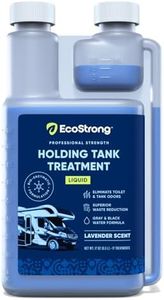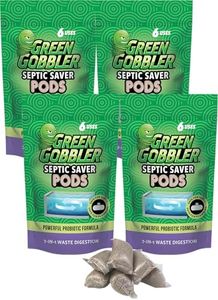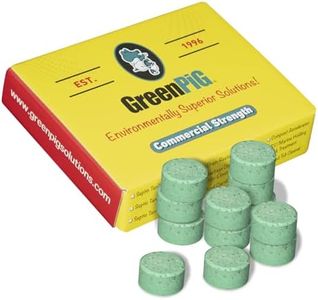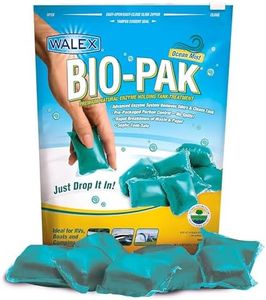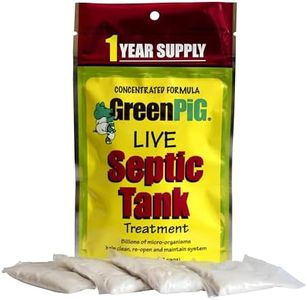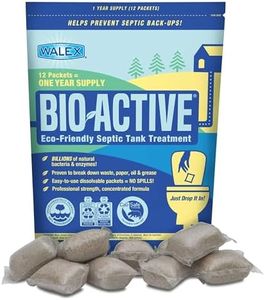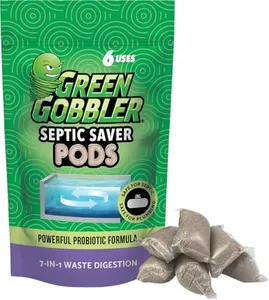We Use CookiesWe use cookies to enhance the security, performance,
functionality and for analytical and promotional activities. By continuing to browse this site you
are agreeing to our privacy policy
10 Best Septic Treatments
From leading brands and best sellers available on the web.By clicking on a link to a third party's website, log data is shared with that third party.
Buying Guide for the Best Septic Treatments
Choosing the right septic treatment is important to maintain the performance and health of your septic system. These products are designed to break down waste, reduce odors, and prevent build-up that can cause system backups or failures. Because not all septic systems are the same and households differ in their size and usage patterns, it's essential to pick a treatment that matches your system's needs and your daily habits. Understanding what makes one treatment different from another will help you maintain your system for years without hassle.Type of TreatmentSeptic treatments typically come in various forms such as powders, liquids, pods, or tablets. Each type works slightly differently and affects how you apply the product and how quickly it acts within the system. Powders and liquids are often ideal for regular monthly maintenance and can be added directly to the toilet or the system itself, while pods and tablets might be more convenient for people who want a no-mess, pre-measured option. To pick the right type for you, consider how often you want to perform this maintenance and whether you prefer a simple, hands-off method or don’t mind some extra steps.
Ingredients/Active AgentsThe effectiveness of a septic treatment largely depends on the active ingredients. These are usually biological (like bacteria and enzymes) or chemical. Biological treatments use living organisms to break down waste, which is generally safer for your system and the environment, while chemical treatments can deliver fast results but may be harsher. For most homeowners, biological treatments are recommended, especially if you want to maintain a healthy system over the long term without risking damage to pipes or harming the environment.
Frequency of UseTreatments differ in how often you need to use them—some are weekly, some monthly, and a few even longer. Frequency matters for your convenience and for matching with your household habits. If you have a busy household or tend to forget regular chores, look for a treatment that fits easily into your routine—monthly or longer intervals are generally easier for most people to remember.
System CompatibilitySeptic systems can vary, including conventional, aerobic, or alternative systems. Not all treatments are suitable for every system type, so it’s important to ensure the product you choose is compatible with your own system. This helps avoid any accidental damage or ineffectiveness. To pick the right one, check product labels or descriptions to see if it fits your type of septic setup.
Environmental FriendlinessSome septic treatments have ingredients that are biodegradable and safe for groundwater and surrounding soil, which is especially important if you live in an area where the system impacts your environment (like near wells, lakes, or gardens). If environmental impact is a concern for you, look for products noted as eco-friendly, biodegradable, or safe for the environment.
Odor ControlOne important function of septic treatments is how well they reduce or prevent unpleasant odors. Some products are specifically designed to handle odor more effectively, while others focus on breaking down solids. If odors are a recurring issue in your home or property, look for products that specifically mention odor control as a feature.
